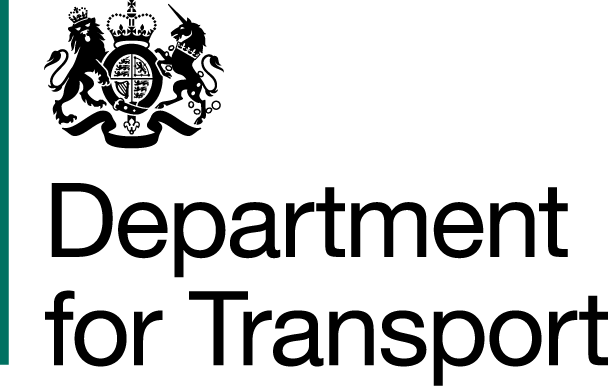
As part of a raft of Accessibility and Inclusion initiatives currently in development and implementation by the Transport for Wales Rail Accessibility and Inclusion Team; this document has been created in partnership with the Rail Delivery Group and other National Train Operating Companies (TOCs).
The purpose of this document is to inform interested parties, both internally and externally to the Rail Industry about the range of relevant Guidance, Legislation and Compliance affecting the Rail Industry as a whole today.
While it is recognised that this document is not all-encompassing, it provides an overview and resource in respect of the myriad of factors and legislation that must be taken into account and appropriately acted upon by all Rail Operating Companies within England and Wales.
Technical specifications
Technical Specifications for InteroperabilityTechnical specifications for interoperability (TSI) define the technical and operational standards which must be met to satisfy the ‘essential requirements’ and to ensure the ‘interoperability’ of the European railway system. TSIs also set out expected performance levels. The Railways (Interoperability) Regulations 2011 set out the accessibility requirements for heavy rail in the form of the PRM TSI persons with reduced mobility technical specification for interoperability. The Rail Vehicle Accessibility (Non Interoperable Rail System) Regulations 2010 (RVAR 2010) set out the accessibility standards to which new non-mainline (and older rail vehicles as and when they are refurbished) must comply. Rolling stock covered by RVAR 2010 or the PRM TSI has to provide a number of features that make it easier to use such as handholds, passenger information displays, priority seats and provision for wheelchairs. The PRM TSI also sets accessibility standards for new stations or for stations where major work takes place. |
Public Service Vehicle Accessibility Regulations (PSVAR)PSVAR is relevant to TOCs as they need to ensure that the vehicles used as rail replacement services are accessible. PSVAR applies to all new public service vehicles (buses or coaches):
PSVAR applies in England, Scotland and Wales and are the responsibility of the Department for Transport. Northern Ireland has introduced separate regulations. These are the responsibility of the Department for Regional Development. |
Rail Vehicle AccessibilityAn outline of the rail accessibility legislation enforced by the ORR. |
Platform Train Interface GuidanceIncidents at the platform train interface (PTI) account for almost half of the total passenger fatality risk on the mainline railway network, and about one-fifth of the overall passenger fatality and weighted injury (FWI) risk. This RSSB PTI page provides access to various publications, tools and research on this topic. |
Industry accessibility standards/policies
Accessible Travel Policy (ATP)Train and station operators are required by their operating licences to establish and comply with an Accessible Travel Policy (ATP) which must be approved by ORR. An ATP sets out, amongst other things, the arrangements and assistance that an operator will provide to protect the interests of disabled people using its services and to facilitate such use. |
DfT’s Inclusive Transport StrategyThis Strategy sets out the Government’s plans to make our transport system more inclusive, and to make travel easier for disabled people. While it is focused on the inclusion of disabled people, many of the improvements will also benefit other travellers. |
Design Standards for Accessible Railway Stations: a code of practice by the Department for Transport and Transport Scotland.This code will help train operators and anybody else carrying out rail infrastructure improvements to design more accessible trains and stations. It has been published to ensure that any infrastructure work at stations makes railway travel easier for disabled passengers. |
Network Rail’s Everyone StrategyThe Everyone Strategy describes Network Rail’s approach to diversity and inclusion across three themes: access and inclusion; behaviours and benchmarks; and collaboration. |
Network Rail Diversity Impact Assessments (DIA)DIA is the method Network Rail has chosen to embed thinking about diversity and inclusion, and to demonstrate that they are meeting their Public Sector Equality Duty. Like a risk assessment process, a DIA is a tool that helps any programmes, policies, and projects – and the way that services are designed, built and operated – to work well for employees and passengers. |
Transport legislation
Transport Act 1985The Transport Act of 1985 was created as a response to growing concern about the environmental effect the private transportation was having and the public's objection to an increase in road construction. The Act also committed to reduce the amount the public paid for commercial objects. |
Disabled Persons Transport Advisory Committee (DPTAC)An expert committee established by the Transport Act 1985, the Disabled Persons Transport Advisory Committee (DPTAC) providing advice to the government on the transport needs of disabled people. All DPTAC activities are aligned with its vision statement, that “disabled people should have the same access to transport as everybody else, to be able to go where everyone else goes and to do so easily, confidently and without extra cost”. |
Railways Act 1993This legislation created a new regulatory regime for the railways, with the establishment of the Rail Regulator (dealing with the monopoly and dominant elements of the industry, principally Railtrack (now Network Rail)) and the Director of Passenger Rail Franchising, whose role was to sell passenger rail franchises to the private sector. The Director of Passenger Rail Franchising was replaced in 2001 by the Strategic Rail Authority (SRA). When the SRA was abolished in 2006 franchising were taken over by the Secretary of State for Transport. The statutory position of Rail Regulator was abolished in July 2004 and his functions were taken over by the Office of Rail Regulation. Read the Railways Act 1993 here |
Rail industry statistics
DfT Rail StatisticsStatistics and data about the national rail system in Great Britain |
ORR Passenger Assistance StatsPeriodic (4-weekly) statistics containing data on the number of passengers booking assistance and the number delivered by train operating company. Published periodically, these statistics are updated quarterly, with a yearly factsheet published annually. This data forms part of ORR's core consumer data requirements from train operating companies |
Consumer legislation
Equality Act 2010The Equality Act 2010 is an Act of Parliament of the United Kingdom with the primary purpose of consolidating, updating and supplementing the numerous prior Acts and Regulations, that formed the basis of anti-discrimination law in Great Britain. |
Consumer Protection Act 1987The Consumer Protection Act 1987 gives you the right to claim compensation against the producer of a defective product if it has caused damage, death or personal injury. The act also contains a strict liability test for defective products in UK Law making the producer of that product automatically liable for any damage caused. |
General Data Protection Regulation (GDPR)GDPR came into force on May 25th 2018, and was designed to modernise laws that protect the personal information of individuals. This Information Commissioner’s Office Guide to the GDPR is part of their Guide to Data Protection, aimed at Data Protection Officers and others who have day-to-day responsibility for data protection. It explains the general data protection regime that applies to most UK businesses and organisations. It covers the General Data Protection Regulation (GDPR) as it applies in the UK, tailored by the Data Protection Act 2018. |
Misrepresentation Act 1967Misrepresentation Act 1967 is a United Kingdom Act of Parliament of the United Kingdom which amended the common law principles of misrepresentation. Prior to the Act, the common law deemed that there were two categories of misrepresentation: fraudulent and innocent. |
Welsh specific related
Well-being of Future Generations Act 2015The Well-being of Future Generations Act is unique to Wales. It requires public bodies in Wales to think about the long-term impact of their decisions, to work better with people, communities and each other, and to prevent persistent problems such as poverty, health inequalities and climate change. |
Welsh Language Act 1993The Welsh Language Act is an Act of the Parliament of the United Kingdom, which put the Welsh language on an equal footing with the English language in Wales. |
General disability-related stats
DWP Family Resources SurveyThe Family Resources Survey (FRS) is a continuous household survey which collects information on a representative sample of private households in the United Kingdom. These annual publications provide statistics and commentary on:
|
ScopeScope is a disability equality charity in England and Wales, key disability facts and figures |
Leonard CheshireLeonard Cheshire is a global disability equality charity, key disability facts and figures |
Alternative formats
All our documentation conforms to the Welsh language standards / Welsh Language act and are available Bilingually. However, please be advised that linked websites may be in English.
Alternative formats of all our document are free of charge, from the Customer Relations team. The team can provide alternative formats such as large print, Braille or audio versions.
We will provide the large-print document within seven days of receiving your request, and any other formats as soon as possible.
If you would like copies of these guides or any other TfW publications in an alternative format please contact us in the following ways:
- Customer Relations team on 03333 211 202 (From 08:00 - 20:00 Monday to Saturday and 11:00 - 20:00 Sunday except 25 and 26 December)
- Or contact us via our webform
- Or write to us at:
FREEPOST
TFW RAIL CUSTOMER RELATIONS



